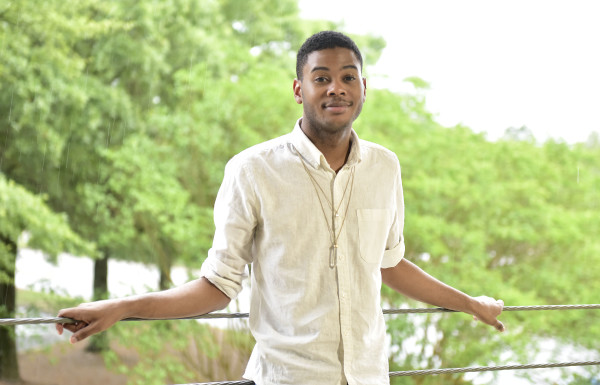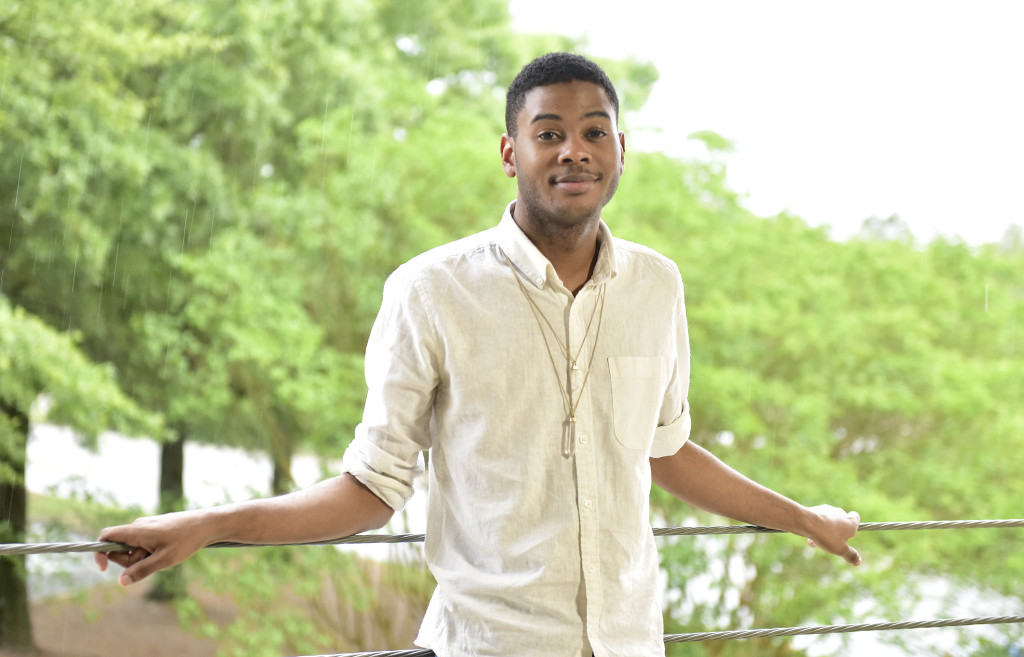
By Ariel Worthy
The Birmingham Times

What is it like to grow up black and gay?
Carlton Bell, who grew up in Alabaster, said he used to dread going to his stepfather’s downtown barbershop, which he describes as the “hypercenter of black masculinity.” He would hear people in the shop say offensive terms directed toward gay men, and he would cringe.
“I didn’t exactly know what they were talking about, but I knew the people they were talking about—and those people were just like me,” Bell said.
As he grew older, Bell became confident in who he is. Still, when he has to go to a black barbershop, he is mindful of what he wears.
“I preplan what I am going to wear, like gym shorts or a basic shirt, if I have to go to a black barbershop,” he said.
Coming Out
Bell, who attended college in Florida said he frequented the Pulse nightclub where 49 people were killed this month, said he never had to worry about telling his mother that he is gay.
“It was just always kind of known,” he said.
When Bell was in the sixth grade, he told his biological father.
“I can remember my mom saying, ‘It’s time to tell your dad. It’s not that big of a deal,’” he recalled. “When I told him, he said I was too young to know, but he didn’t freak out. It was more like, ‘We’ll talk about this later.’ And later never came.”
When befriending people, Bell sometimes feels like an accessory.
“People want the sassy black gay friend, like it’s a hot commodity,” he said. “I feel like a puppy sometimes.”
The black gay community in Birmingham is close-knit because they feel that the black Lesbian Gay Bisexual Transgender (LGBT) community is all they have, according to Bell.
“There are families in the community, and it’s really needed because a lot of teenagers and younger people don’t have anyone to help them get through life being black and gay,” he said.
Abuse … and More
Stephanie Patterson, who is with Lesbians Living Life, recalls a difficult period in her life as a teen.
“When I first came out, I was 15 years old, and my parents weren’t happy at all,” Patterson recalled. “I had my TV taken away. I wasn’t allowed to talk on the phone. I was put on an actual punishment because I was gay. I was threatened with being sent away and being kicked out of the house. I even met with physical abuse and was beaten because I’m gay.”
Patterson is currently engaged to be married in August, but many people do not accept her engagement.
“Some straight people don’t take us seriously,” she said. “They think it’s something we’re just saying. It’s still a journey.”
Gina Mallisham, a coordinator at Birmingham AIDS Outreach, agrees that there are difficulties in getting people to take same-sex marriage seriously.
“Everyone wants to go to a gay wedding and have a GBF—gay best friend. It’s not like a fake rainbow certificate they give you at the courthouse,” said Mallisham, who was raised by a gay mother. “You’re legit married, and you have to get legit divorced just like everyone else.”
Chris Campbell, 34, said he doesn’t speak with his biological family because they found out he does drag shows and stopped talking to him.
“Back around 2008, the University of Alabama at Birmingham had some type of Gay Day event, and I was interviewed by a reporter at the school. They took a photo of me getting dressed in drag, and the article got to a church member. My aunt called me one day and said, ‘Chris, you do drag?’ It floored me. I said ‘Yeah, I do.’ She said ‘Oh, OK.’ That was the last time I spoke to her.”



